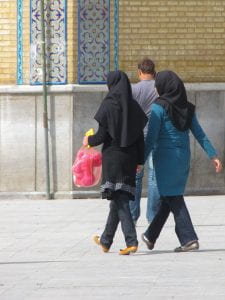By Ms Roseanne Russell, Lecturer in Law (University of Bristol Law School).
 Last week’s reports of the Presidents Club charity dinner once again revealed the troubling culture of the City: ‘that weird mix of cutting-edge high finance and caveman misogyny’ (Patrick Jenkins, Financial Times, 24 January 2018). Journalist Madison Marriage’s exposé recounted how 130 ‘hostesses’ were recruited for a fundraising dinner to be attended by 360 men from the worlds of politics, business and finance (Financial Times, 23 January 2018). Although it is not clear who attended, press reports have stated that the guest-list included senior executives from well-known corporate groups, bankers and hedge fund managers.
Last week’s reports of the Presidents Club charity dinner once again revealed the troubling culture of the City: ‘that weird mix of cutting-edge high finance and caveman misogyny’ (Patrick Jenkins, Financial Times, 24 January 2018). Journalist Madison Marriage’s exposé recounted how 130 ‘hostesses’ were recruited for a fundraising dinner to be attended by 360 men from the worlds of politics, business and finance (Financial Times, 23 January 2018). Although it is not clear who attended, press reports have stated that the guest-list included senior executives from well-known corporate groups, bankers and hedge fund managers.
The well-intentioned aim of the evening’s auction was to raise money for charity. According to the Club’s website, ‘over the years, esteemed members of the investment, real estate, sports, entertainment, motor industry and fashion world have come together to support and raise millions of pounds for the trust in its work to help as many worthy children’s causes.’ Marriage’s report, however, painted a picture of the highly sexualised City culture that Linda McDowell so vividly captured in her 1997 book Capital Culture and by the Fawcett Society in its 2009 report on Sexism and the City. While ‘hostesses’ were apparently groped, subjected to lewd comments, and, in one instance, asked to join an attendee in his bedroom, the men attempted to outdo each other’s bids for lots including ‘an exclusive private night’ at a strip club, plastic surgery to ‘take years off your life or add spice to your wife’, and a combined lot of lunch with the Foreign Secretary and tea with the Governor of the Bank of England. The winning bid for this last lot was reportedly £130,000. The hostesses were asked to dress as though attending a ‘smart, sexy place’ and asked to sign a non-disclosure agreement (“NDA”) relating to the evening. (more…)



